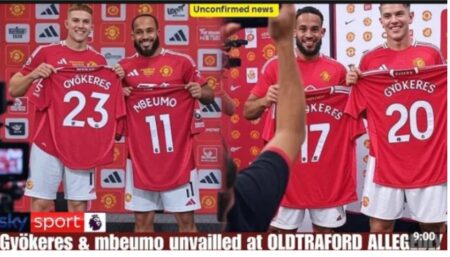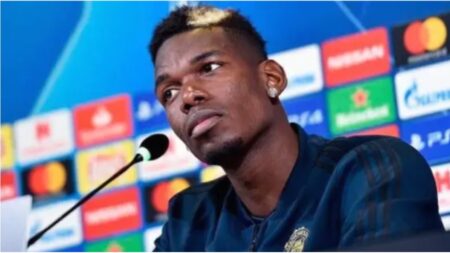In a tightly contested game at Anfield, Erik ten Hag’s team managed to secure a goalless draw, a stark departure from their previous high-intensity clash.
The crucial turning point occurred during injury time when Diogo Dalot took center stage. In a brief ten-second span, Dalot’s actions drew significant attention, as he received two yellow cards that dramatically changed the course of the game.
Initially cautioned for disputing a decision with the referee, Dalot’s impatience led to the first booking. Disregarding the warning, his emotions escalated, prompting Michael Oliver to swiftly issue a second yellow card, resulting in his expulsion.
Reduced to ten players due to Dalot’s red card, Manchester United encountered increased defensive challenges.
The incident spurred debates among fans, experts, and analysts, each offering varying interpretations of the referee’s judgments.
Liverpool fans, buoyed by their numerical advantage, expressed disappointment at missing a late penalty opportunity, heightening the tension at Anfield.
Manchester United supporters praised Dalot’s initial defensive efforts while questioning the severity of the second yellow card, recognizing the precarious situation.
The referee’s handling of the situation injected unexpected drama into the otherwise subdued affair. As both teams navigated the final stages with changing dynamics, the match ended in a goalless draw, leaving lingering debates about the referee’s impact on the game’s result.
Ultimately, Dalot’s dramatic exit overshadowed the absence of goals, becoming a widely discussed topic beyond Anfield.
The discussions around referee decisions in football were fueled by conflicting opinions among spectators and post-match analysis, emphasizing the sport’s ability to provoke passionate debates and emotions.




